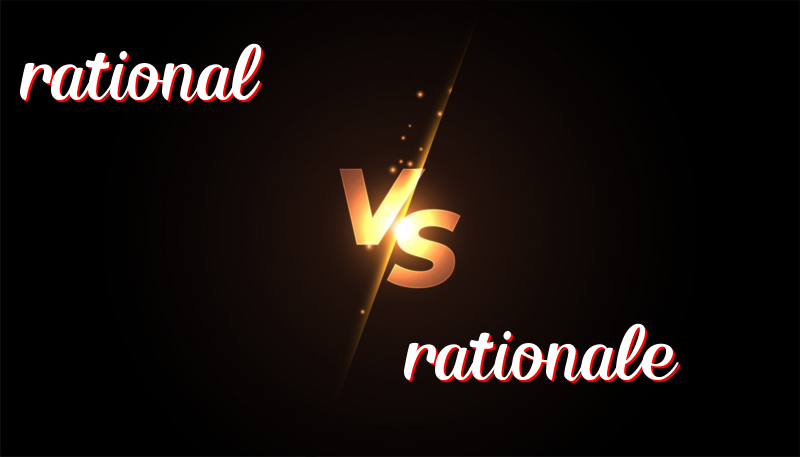英語單詞Rational 與 Rationale的區別
September 04, 2024
「Rational」和「Rationale」的區別
學習英語時,有些詞語看起來相似,但意思卻完全不同。今天我們要探討的是「Rational」和「Rationale」這兩個詞語的區別。
詞源 (Etymology)
「Rational」來自拉丁文「rationalis」,意思是「有理性的、合理的」。而「Rationale」則來自拉丁文「rationalis」的名詞形式,意味著「理由、依據」。
用法 (Usage)
Rational: 這個詞主要作為形容詞使用,意思是「合理的、理性的」。
Rationale: 這個詞主要作為名詞使用,意思是「理由、依據」。
記憶技巧 (Trick to Remember the Difference)
一個簡單的記憶技巧是將「Rationale」聯想成「理由(Document)」,即一種文件或文獻中常見的名詞形式。而「Rational」則是描述一個人的行為或決策的形容詞。
「Rational」的例句:
- The decision to invest in renewable energy was entirely rational.
選擇投資可再生能源的決定完全是合理的。 - She approached the problem in a rational manner.
她以理性的方式來解決這個問題。 - His arguments were rational and well-thought-out.
他的論點是合理且經過深思熟慮的。 - People expect leaders to make rational decisions.
人們期望領導者能做出合理的決策。 - It’s rational to prepare for emergencies.
為緊急情況做準備是合理的。
「Rationale」的例句:
- The rationale behind the new policy is to improve public health.
新政策背後的理由是為了改善公共健康。 - She explained the rationale for her decision.
她解釋了她決定的理由。 - The committee provided a clear rationale for their recommendations.
委員會提供了他們建議的明確依據。 - Understanding the rationale of the project can help in its successful implementation.
了解該項目的依據可以幫助成功實施。 - The rationale for changing the rules was to ensure fairness.
改變規則的理由是為了確保公平。
總結 (Summary)
總結來說,「Rational」用來描述某事物是否符合邏輯、合理。而「Rationale」則用來描述某個決定或行動背後的理由或依據。牢記這一區別能幫助你在使用這些詞語時更加準確。

Leave a Reply
You must be logged in to post a comment.